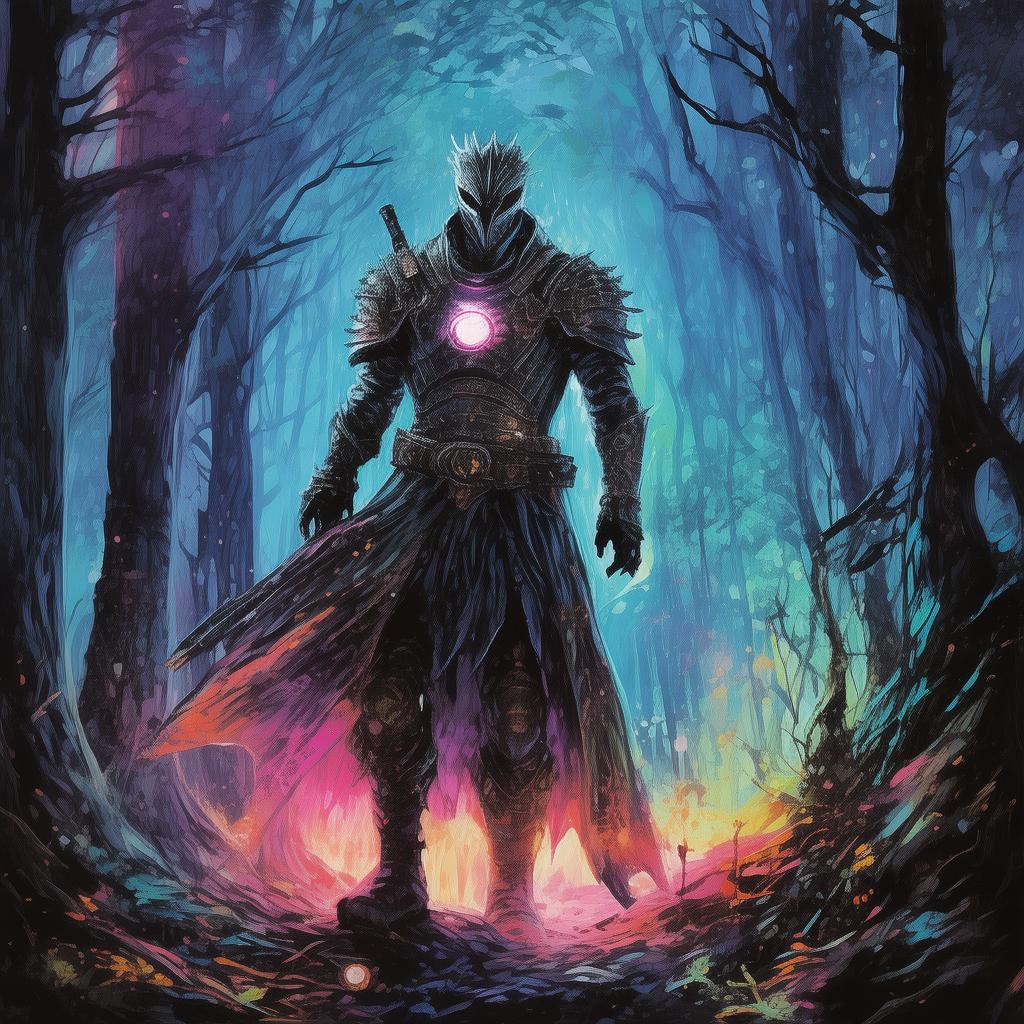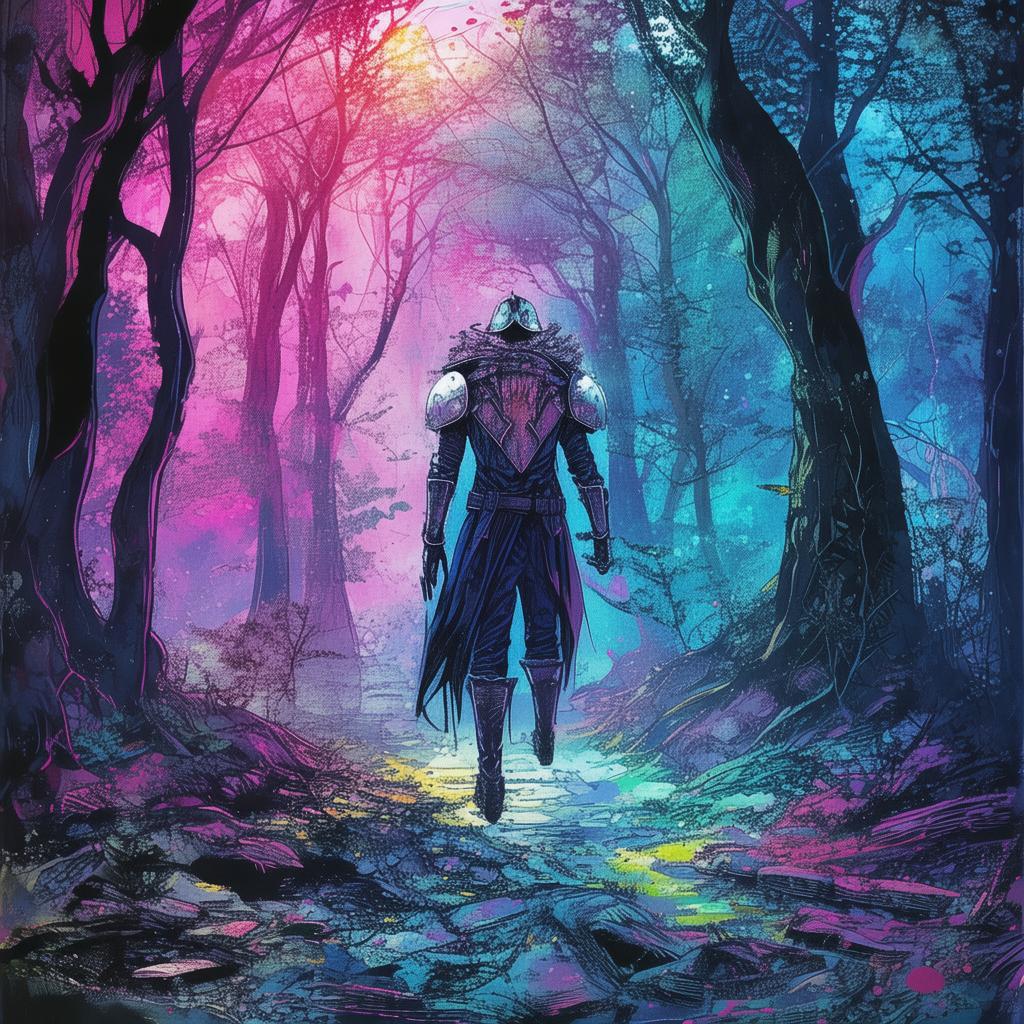The Phoenix's Dilemma: The Luoyang Passion Play's Hidden Truth
In the heart of ancient Luoyang, where the air is thick with the scent of incense and the echoes of the past resonate through the cobblestone streets, there was a play that held the city in thrall. The Luoyang Passion Play, a ritualistic drama performed annually to honor the mythical phoenix, was not just a spectacle of theater—it was a living testament to a thousand-year-old legend.
In the year 1327, amidst the grandeur of the play, there was a young actor named Ming. He was not just an actor; he was the embodiment of the phoenix, his face painted with the fiery hues of the bird itself. Ming was born with a rare gift; he could channel the spirit of the phoenix, making the performance feel as if the mythical creature had taken flesh.
The play was a cycle of birth, death, and rebirth, echoing the phoenix's own journey. Yet, as the yearning for the divine bird grew, so too did the whispers of the city. Ming, however, was not the only one who believed in the legend of the phoenix. There was a woman named Li, a historian with a penchant for uncovering the truth behind the myths. She had spent years studying the play, trying to piece together the story of the phoenix.
One fateful night, as the play reached its climax with the phoenix's fiery rebirth, Ming felt an inexplicable pull towards the backstage. There, amidst the shadows and the clutter of costumes, he found an old, dusty scroll. It was a scroll that spoke of the phoenix's origin, a tale untold for centuries.

The scroll spoke of a secret that had been kept from the world. The phoenix was not just a creature of myth, but a symbol of the city's survival through its darkest hours. During the Liao Dynasty, Luoyang had been attacked, and the people had turned to the phoenix for salvation. The scroll detailed the creation of the Luoyang Passion Play as a way to keep the legend alive, to remind the city of its resilience.
Ming, captivated by the scroll's content, began to question everything he knew about the play. He felt a strange kinship with the phoenix, as if he were meant to be the keeper of this ancient truth. He confided in Li, who, with her scholarly mind, saw the scroll as a treasure trove of information. Together, they decided to delve deeper into the legend.
Their investigation led them to the city's archives, where they discovered more scrolls and documents that spoke of the phoenix's connection to the city's founders. They learned that the play was not just a ritual but a sacred duty, passed down through generations. The phoenix was the soul of Luoyang, and the play was the heart that kept it beating.
As they uncovered the truth, Ming's role in the play became more than just an actor's part. He felt a responsibility to protect the secret, to ensure that the phoenix's legend would never be forgotten. Li, too, felt the weight of their discovery, understanding that the play was more than a performance—it was a living history, a testament to the indomitable spirit of the city.
But their quest for the truth was not without its challenges. The city's elite, who had always been the guardians of the legend, began to take notice of their investigation. They saw Ming and Li as a threat to the status quo, and they were not willing to let the secret slip from their grasp.
The conflict reached its peak during the next performance of the Luoyang Passion Play. Ming, now fully aware of his destiny, stood center stage, ready to share the truth with the world. But as the play reached its climax, a figure from the shadows approached the stage, his intentions clear.
The confrontation was intense, a battle of wills and beliefs. Ming, driven by the phoenix's spirit, fought back with all his might. In the end, it was Li who managed to outsmart their adversaries, securing the scroll and the secret of the phoenix.
The play concluded with a twist that left the audience in awe. Ming, as the phoenix, soared into the heavens, leaving the audience to wonder about the true nature of the legend. Li, with the scroll in hand, knew that the story of the phoenix was far from over.
In the aftermath, Ming and Li became the guardians of the phoenix's secret, ensuring that the legend would live on for generations to come. The Luoyang Passion Play continued, but now, with a new understanding of its significance, it became more than just a performance—it was a living, breathing testament to the enduring spirit of the phoenix and the city that loved it.
The legend of the phoenix had found its true purpose, and Ming and Li had become the unlikely heroes of a story that had been unfolding for a thousand years.
✨ Original Statement ✨
All articles published on this website (including but not limited to text, images, videos, and other content) are original or authorized for reposting and are protected by relevant laws. Without the explicit written permission of this website, no individual or organization may copy, modify, repost, or use the content for commercial purposes.
If you need to quote or cooperate, please contact this site for authorization. We reserve the right to pursue legal responsibility for any unauthorized use.
Hereby declared.









